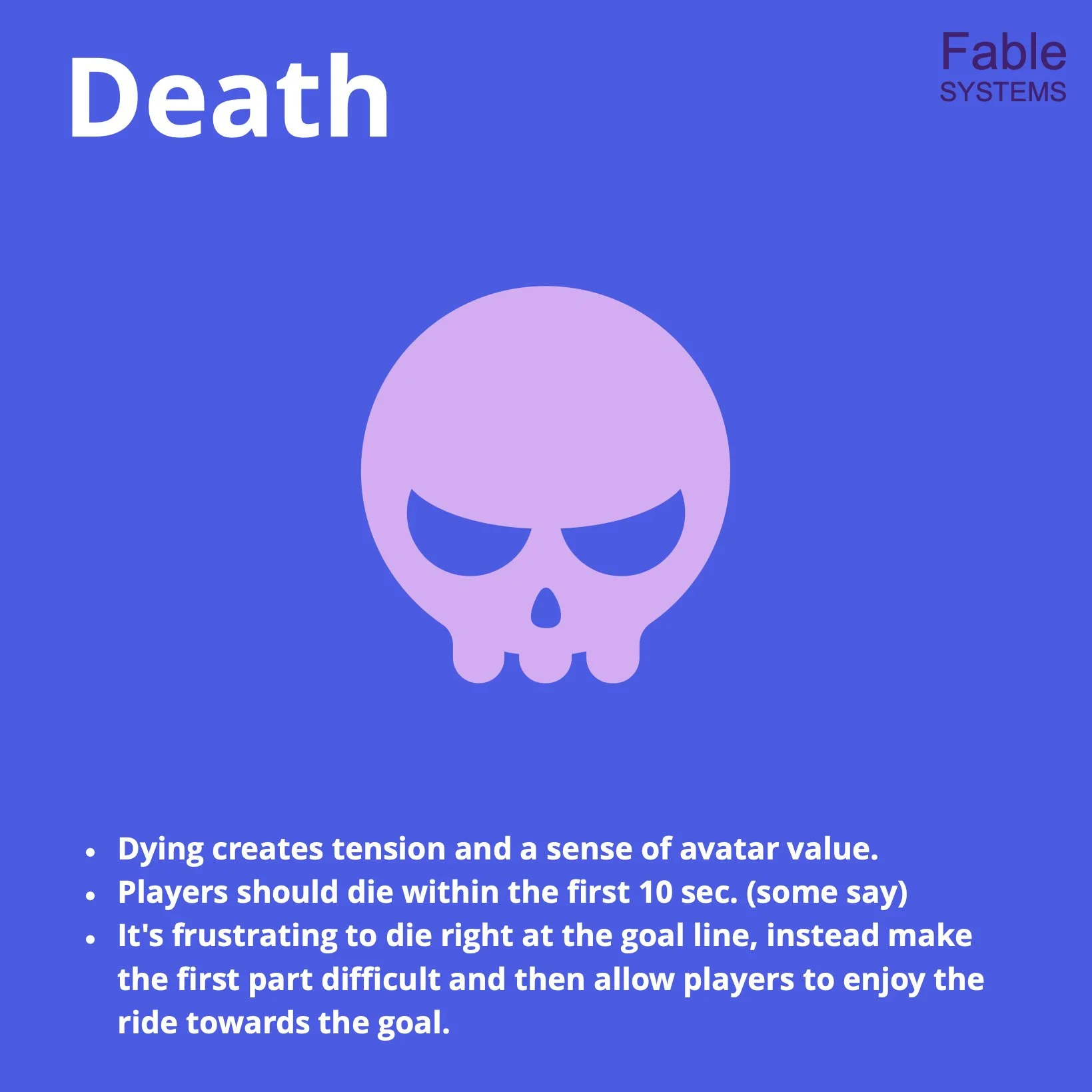Tale 004
Key elements of compelling game experiences
Games have the ability to transport us to different worlds and immerse us in the action like no other medium can. But what makes a game truly great? In the following I’ve gathered a number of key principles that I tend to return to again and again - fundamental for any game experience. Let's explore some of these principles and how they contribute to a player's enjoyment:
Flow is a state of complete immersion in the game, where players feel like they are part of the action. To achieve this, designers balance the level of challenge with the player's skill level, provide clear goals, and give instant feedback. This creates a sense of engagement and accomplishment that keeps players coming back for more.
Death is a tool that designers use to create tension and challenge in a game. Rather than punishing the player for failure, death can be used as a way to increase the stakes and make the player feel invested in the outcome.
Stepped progression is a way of increasing the difficulty of the game in a series of small, incremental steps. It allows players to gradually become more skilled, and it gives them a sense of accomplishment as they advance through the levels.
Magical moments are unique, memorable experiences that make players feel like they are in a special place or situation. These moments can be created through unexpected events, beautiful visual effects, or powerful emotions.
The First Time User Experience (FTUX) is the initial experience of the game, and it's crucial in making players decide whether they want to continue playing or not. The FTUX should be simple, easy to understand, and fun, so players can quickly get into the game and start enjoying it.
Clear goals allow players to understand exactly what they need to do in order to progress in the game. Through clear objectives, tutorial levels, and giving players a sense of purpose, designers can help players navigate the game and keep them engaged.
Emotion is a powerful tool that game designers use to create a sense of tension, excitement, or even empathy in players. Games that can evoke a range of emotions are often considered the most successful and impactful.
Replayability is a feature that allows players to discover new elements and content in multiple playthroughs. Designers can achieve this by designing the game to have multiple levels, multiple endings, and varied mechanics.
Difficulty scaling refers to the way the game's challenge adapts to the player's skill level. It allows players of different skill levels to enjoy the game, feeling challenged without becoming frustrated.
All these elements are important to create a compelling game experience, and it's important to find a balance and balance it well to create a great game. A game that incorporates these principles will be able to keep players engaged and coming back for more.
(This post has been co-written with ChatGTP)









